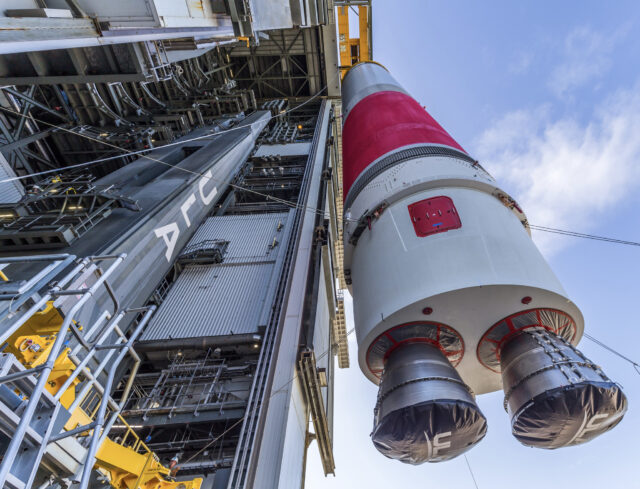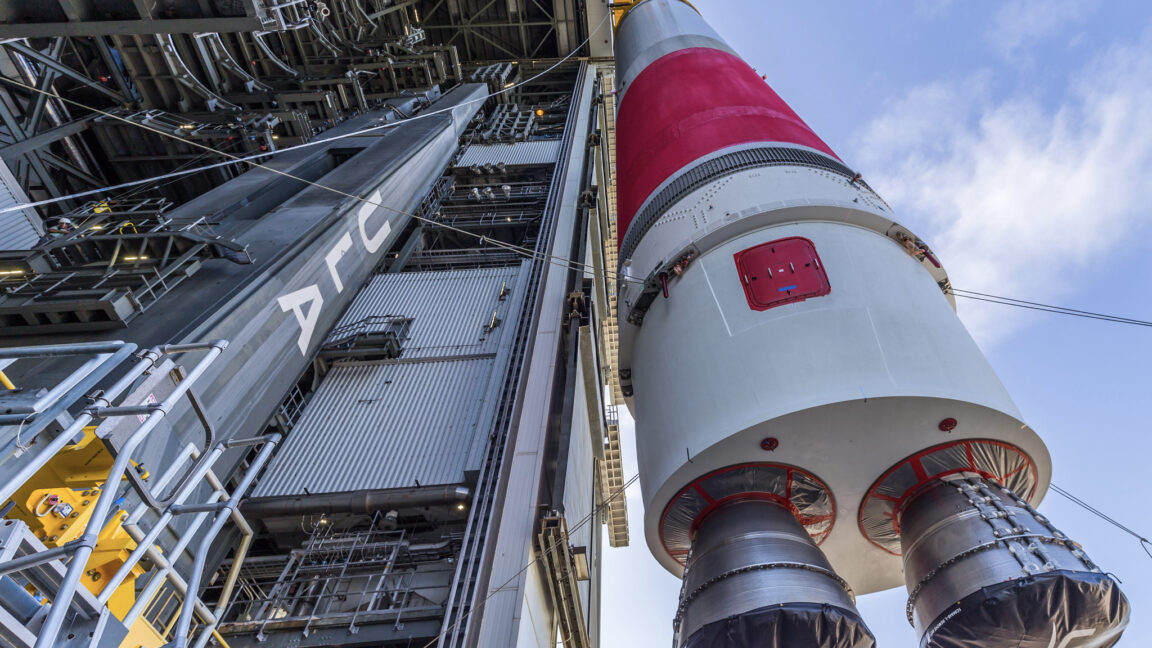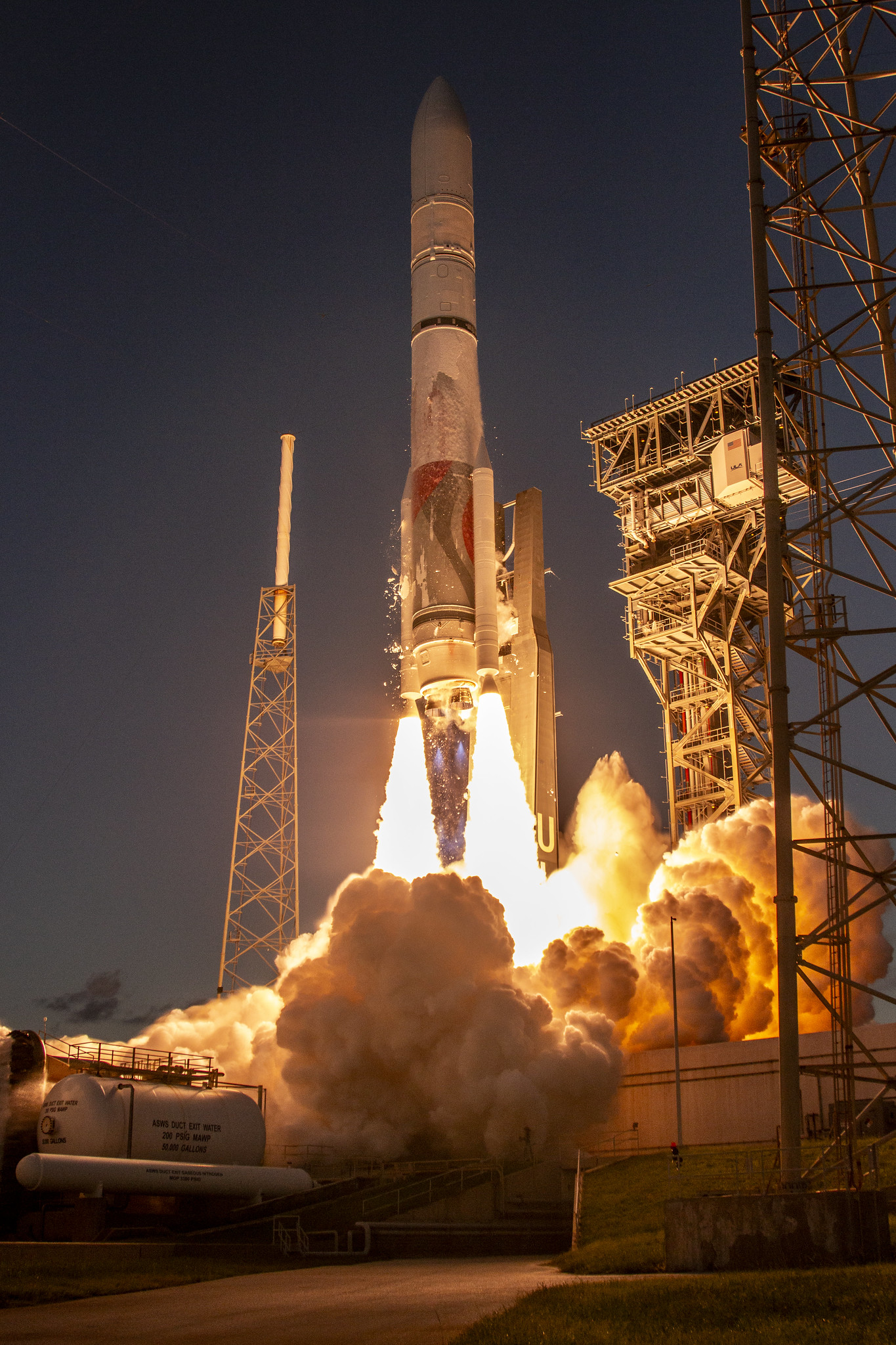Last October, United Launch Alliance started stacking its third Vulcan rocket on a mobile launch platform in Florida in preparation for a mission for the US Space Force by the end of the year.
That didn't happen, and ULA is still awaiting the Space Force's formal certification of its new rocket, further pushing out delivery schedules for numerous military satellites booked to fly to orbit on the Vulcan launcher.
Now, several months after stacking the next Vulcan rocket, ULA has started taking it apart. First reported by Spaceflight Now, the "de-stacking" will clear ULA's vertical hangar for assembly of an Atlas V rocket—the Vulcan's predecessor—to launch the first batch of operational satellites for Amazon's Kuiper Internet constellation.
This involves removing the rocket's Centaur upper stage, interstage adapter, and booster stage from its launch mount. ULA's facilities at Cape Canaveral Space Force Station, Florida, can only handle stacking one rocket at a time. A second assembly building will double this capacity when it comes online later this year.
ULA hoped to launch as many as 20 missions in 2025, with roughly an even split between its new Vulcan rocket and the Atlas V heading for retirement. That would require around one launch every two and a half weeks. Six weeks into 2025, ULA's first launch of the year is still a month or more away.
More than crossing T’s and dotting I’s
The laborious process of certifying a new rocket or spacecraft involves numerous reviews and metaphorical stacks of paperwork. The Space Force's objective with certifying the Vulcan rocket is ensuring it will provide a reliable ride to orbit for the military's most sensitive and expensive satellites. These include spy satellites, missile warning sentinels, and spacecraft for the Global Positioning System.
In 2020, the Pentagon awarded ULA and SpaceX multibillion-dollar "Phase 2" contracts to share responsibilities for launching dozens of national security space missions. At that time, these launches were projected to fly by the end of 2027, although that's unlikely to happen now.
The Space Force awarded ULA 26 missions worth $4.5 billion under the Phase 2 contract, while 22 missions went to SpaceX's Falcon 9 and Falcon Heavy. SpaceX started delivering on its Phase 2 contract in January 2023. The first of ULA's Phase 2 missions launched last year on an Atlas V rocket, and 25 more are slated to fly on Vulcan.




 Loading comments...
Loading comments...
